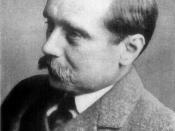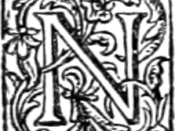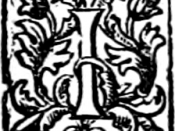By the end of the 19th century, Britain was no longer a predominantly rural nation of small farms and occasional market towns. It had become the principal manufacturing nation in the world.
In British history, the country had never been richer and stronger than this time.
A wide range of new inventions - the electric light bulb, the telephone, the typewriter, the motor car - was radically and rapidly transforming the life style of Englishman.
The Victorian's spirit of optimism that believed that civilization was good and getting better began to fall into pieces under the weight of Darwinian biology and the ominous threat of social agitation caused by the tension of rapid, unplanned industrialization. To intellectuals all over Europe, the Christian religion and belief in a powerful God began to seem mere superstition, left over from an earlier, more credulous age.
A good deal of British literature of the period 1880 to 1914 attempts either to dramatize the spiritual void created or to find substitutes for traditional religious belief.
One such substitute was liberalism.
Liberalism is related with ideas and theories of government that consider individual liberty to be the most important political goal. In general, liberalism emphasizes individual rights and equality of opportunities. Different forms of liberalism may propose very different policies, but they are generally united by their support for a number of principles, including extensive freedom of thought and speech, limitations on the power of governments, the rule of law, the free exchange of ideas, a marked or mixed economy, and a transparent system of government - also called liberal democracy.
In literature, liberalism acknowledges the 'death of God' but claimed that man himself could become a kind of god and create his own heaven on Earth, through scientific and social progress.
Liberal writers come to...


